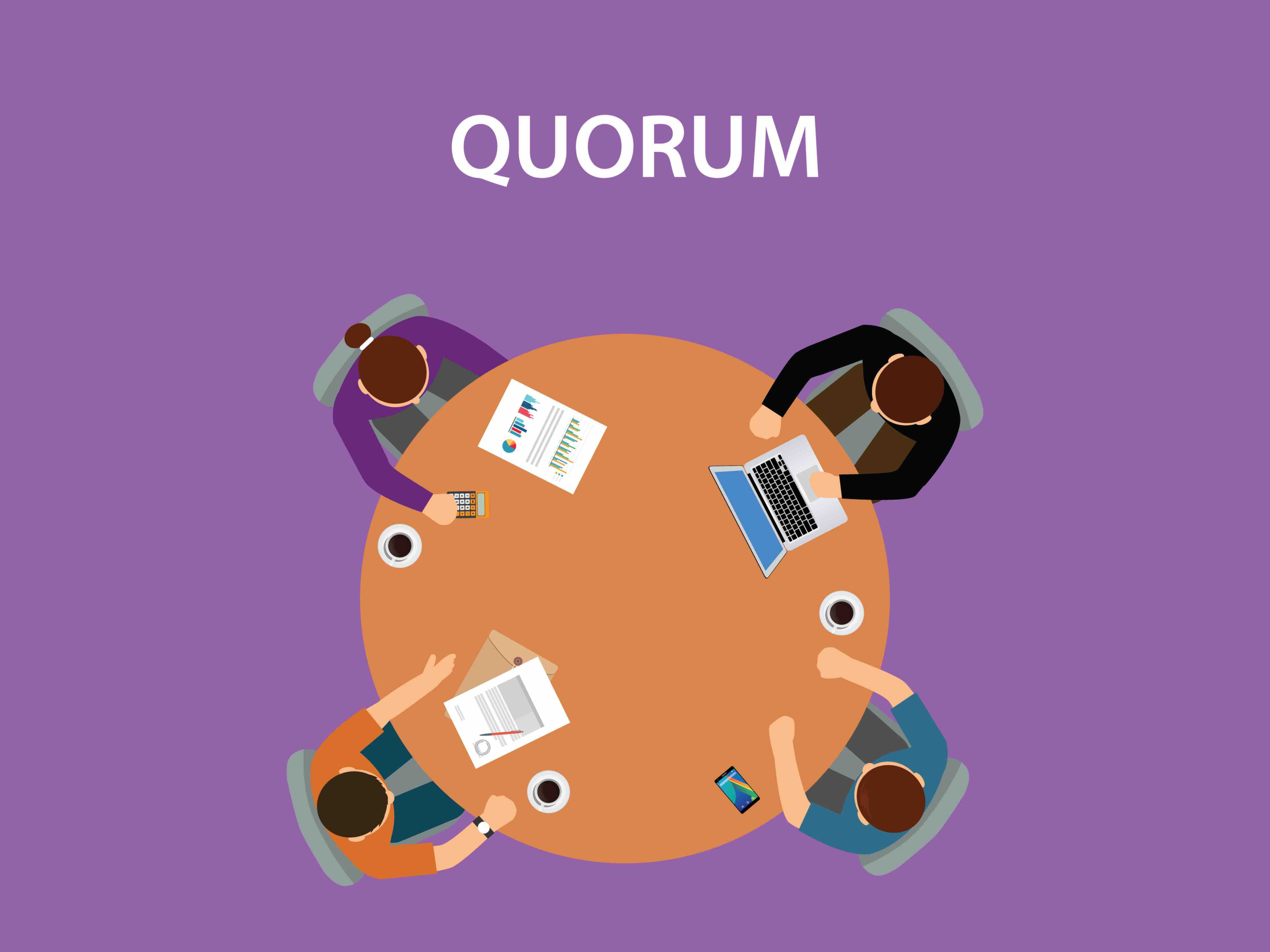1. Introduction
Blockchain technology has gained significant traction in the enterprise world, particularly in the finance, insurance, and banking industries. As businesses seek secure and efficient ways to handle transactions and data, private blockchain platforms have emerged to cater to their specific needs. In this comprehensive guide, we will explore Quorum, a leading private blockchain platform in the finance industry, and delve into its features, functionality, ownership, and future prospects.
2. Understanding Quorum
2.1 The Rise of Blockchain Technology in Enterprises
In recent years, blockchain technology has evolved beyond its association with cryptocurrencies like Bitcoin. Enterprises across various industries are recognizing the potential of blockchain to enhance security, transparency, and efficiency in their operations. The finance, insurance, and banking sectors, in particular, have been at the forefront of blockchain adoption. Private blockchain platforms are playing a vital role in facilitating this adoption by providing industry-specific solutions.
2.2 Quorum: An Overview
Among the private blockchain platforms dominating the finance-related industries, two platforms stand out: Corda by R3 and Quorum by ConsenSys. While Corda holds the market leader position, Quorum has emerged as a strong contender, leveraging its Ethereum-based functionality. Quorum was created as a soft fork from Ethereum in 2016 by JP Morgan Chase, one of the largest financial organizations globally. It incorporates many useful features from Ethereum while introducing enterprise-friendly enhancements such as transaction privacy, permissioned access, and higher transaction throughput.
3. Features and Functionality of Quorum

3.1 Permissioned Networks and Protected Networks
Quorum allows users to create permission-based protected networks where only authorized nodes can participate. This feature ensures that the network remains secure and accessible only to trusted participants. Companies can establish their own private networks on Quorum, which is a crucial requirement for many enterprises seeking to protect sensitive data and maintain control over their blockchain infrastructure.
3.2 Data Privacy and Accessibility
While Ethereum’s transaction data is openly viewable to the public, Quorum provides enhanced data privacy capabilities. Users can regulate access to data, choosing whether it should be accessible to the public, limited to participating nodes on the private network, or restricted to a specific subset of participants. This flexibility allows businesses to ensure data confidentiality while still benefiting from the transparency and immutability of blockchain technology.
3.3 Transaction Speed and Throughput
Quorum offers higher transaction speeds compared to Ethereum, depending on the consensus mechanism chosen and the complexity of the network. While Ethereum manages approximately 15 transactions per second, Quorum can handle several hundred transactions per second. However, it is important to note that transaction speeds can vary depending on the specific network configuration and use case. Many Quorum implementations have reported speeds of around 200 transactions per second.
4. Quorum’s Connection to Ethereum
4.1 Solidity: The Language of Smart Contracts
One of the advantages of Quorum being based on Ethereum is the compatibility with Ethereum’s ecosystem. Quorum uses Solidity as its programming language for smart contract development, which is widely adopted within the Ethereum community. This compatibility ensures that companies implementing Quorum can leverage the existing pool of blockchain developers skilled in Solidity, reducing the barrier to entry and accelerating development processes.
4.2 Tokenization on Quorum
Similar to other private blockchains, Quorum allows businesses to create their own tokens and coins. These tokens and coins are automatically compatible with Ethereum’s widely used token standards. Companies can tokenize assets, create digital payment systems, and establish inter-organizational settlement networks using Quorum’s tokenization capabilities. This opens up opportunities for innovative financial solutions and streamlined business processes within enterprises.
5. Ownership and Development of Quorum
5.1 JP Morgan Chase and the Creation of Quorum
Quorum was initially developed by JP Morgan Chase in 2016 as a blockchain solution specifically tailored for the finance industry. The banking giant recognized the potential of blockchain technology to revolutionize financial transactions and sought to create a secure and scalable platform to meet the industry’s unique requirements. Quorum’s development was driven by JP Morgan Chase’s need for privacy, permissioned networks, and higher transaction throughput.
5.2 The Transition to ConsenSys
In 2020, JP Morgan Chase sold Quorum to ConsenSys, a prominent technology and investment company specializing in Ethereum-based solutions. The transition to ConsenSys marked a significant milestone for Quorum, as it aligned the platform with a company deeply rooted in the Ethereum ecosystem. ConsenSys has since become the owner of Quorum and has continued to develop and enhance the platform to cater to the evolving needs of enterprises.
6. Quorum’s Enterprise Applications

Quorum offers a suite of enterprise applications developed to facilitate the integration of blockchain technology into businesses. These applications address various aspects of blockchain development and enable companies to quickly implement and customize Quorum for their specific use cases. Let’s explore some of the notable applications:
6.1 Tessera Private Transaction Manager
Tessera Private Transaction Manager is an open-source application designed to simplify the creation and management of private transactions on Quorum. It is written in Java, a popular programming language with a vast developer base, making it easily customizable and maintainable for businesses. With data privacy being a primary concern for many companies implementing private blockchains, Tessera PTM plays a crucial role in ensuring secure and confidential transactions on Quorum.
6.2 Codefi Payments
Codefi Payments is an out-of-the-box solution that empowers businesses to create digital payment systems on Quorum. It allows companies to issue their own digital tokens and establish inter-organizational B2B settlement networks. By leveraging Codefi Payments, businesses can streamline payment processes and enhance financial operations within their ecosystem. This application eliminates the complexity associated with building a digital payment system from scratch, enabling companies to deploy such systems in minutes.
6.3 Codefi Workflow
Codefi Workflow simplifies the creation and deployment of inter-organizational networks with streamlined shared business processes. This application is particularly useful for companies aiming to optimize complex supply chains or streamline insurance claims processing. By leveraging Codefi Workflow, businesses can establish efficient and transparent workflows, reducing operational inefficiencies and enhancing collaboration within their networks.
6.4 Codefi Orchestrate
Creating a fully functional blockchain network that involves multiple organizations can be a resource-intensive and time-consuming task. Codefi Orchestrate automates the development of core blockchain network components, significantly reducing development efforts and accelerating time to market. With Codefi Orchestrate, businesses can quickly set up the necessary components of a functional blockchain network, saving valuable resources and mitigating potential functional or security weaknesses.
7. The Absence of a Platform-Wide Cryptocurrency
7.1 Tokens and Coins on Quorum
Quorum, like other major private blockchains, does not have a platform-wide cryptocurrency. However, companies implementing Quorum can create their own crypto tokens or coins that are compatible with Ethereum’s token standards. This flexibility enables businesses to tokenize assets and create customized financial instruments within their private networks on Quorum.
7.2 JPM: A Stablecoin on Quorum
In 2019, JP Morgan Chase introduced JPM, a stablecoin specifically designed for value transfers between companies using Quorum. JPM is pegged to the US dollar and facilitates secure and swift B2B transfers for companies holding USD deposits in JP Morgan bank accounts. It is important to note that JPM is not available for public purchase and is limited to B2B transactions within the Quorum ecosystem.
8. The Future of Quorum
![What is Quorum? [Definition + Impact on Business] | Creative Safety Supply](https://cdn11.bigcommerce.com/s-10c6f/product_images/uploaded_images/quorum.jpg)
8.1 Prominent Users and Adoption
Quorum has gained significant traction in the enterprise blockchain market, attracting prominent users across industries. Microsoft, HSBC, ING Group, LVMH, and Novartis are just a few examples of companies that have adopted Quorum. The platform’s popularity and widespread adoption demonstrate its capability to meet the diverse needs of enterprises and position it for future growth.
8.2 Competition from Corda
Corda, another major private blockchain platform, poses a competitive challenge to Quorum, particularly in the finance-related industries. Corda has established a dominant market position and secured lucrative clients within these sectors. However, as the overall enterprise blockchain market continues to grow, Quorum is well-positioned to seize growth opportunities, even in the presence of strong competition.
9. Conclusion
Quorum offers businesses a high-performance private blockchain platform that inherits the best features of Ethereum. Its permissioned networks, data privacy capabilities, and enhanced transaction speeds make it an attractive choice for enterprises seeking secure and efficient blockchain solutions. With its suite of enterprise applications and the backing of prominent companies, Quorum is poised to play a significant role in the adoption of blockchain technology across industries. As enterprises continue to recognize the potential of blockchain, Quorum’s future looks promising, making it a frequent topic in industry news and discussions.
